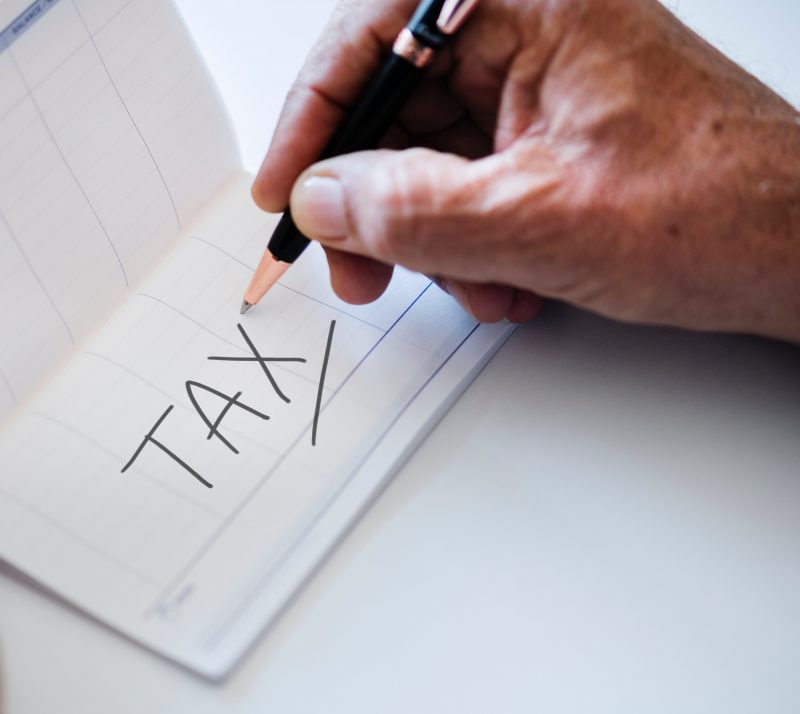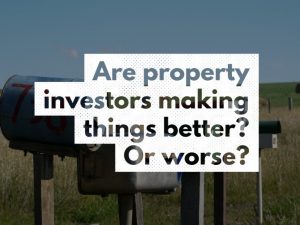I am an investment property owner. I am just the kind of person the Tax Working Group intends to target in their capital gains tax recommendations. This policy is likely going to cost my family a lot of money in the future. But I understand why it needs to be done and I agree with it.
Here are 5 reasons I agree with a Capital Gains Tax and 1 loophole I would add to the system…
We need to even the playing field in our society. If you aren’t going to tax profits to re-distribute some of the wealth, then what are you going to tax?
If you find yourself in position to pay ‘capital gains tax’ it literally means you have made a profit. How can you be mad about making a profit? Paying tax on a profit-based system sounds like the fairest system there could be, doesn’t it? Most of our population pays income tax no matter what. They pay tax whether their annual income allows them to make ends meet or not (ie whether they make a ‘profit’ or not). That doesn’t sound very fair.
New Zealand is one of only two countries in the OECD that does not currently have a Capital Gains Tax. Countries like the UK, US, Australia, Latin America and virtually all of Europe have a Capital Gains Tax, while notable tax havens such as Monaco and Cayman Islands do not.
We are only able to invest in property because we have a stable country with a stable economy and contract law.
In other words, without a stable society, there are no investment properties. If we let our society move further towards one with a greater gap between the rich and the poor then I believe we risk reducing our level of stability. Let’s not forget that we are amongst the luckiest humans on the planet to live where we live. We all have to invest and pay our share to keep this country as fair as possible.
Investors hate the idea of a capital gains tax. But then they would say that…
Many successful property investors have a similar argument against CGT. It goes something like this…
‘I came up from nothing and did this (accumulated assets) all by myself through hard work and saving. Don’t take away my hard earned money! I worked hard for this wealth, if someone is short of money, they just need to take control of their life. Learn how to budget! Learn how to invest! Read a few books! Don’t expect handouts from the rest of us…’
It’s a hard line of reasoning to argue with until you realise the value of your own privilege.
Even in a country like NZ, if you own an investment property you are amongst the privileged few. No doubt you worked hard to get into a financial position where you could own real estate, but at some point, you received some level of luck or dodged some figurative bullet to get where you are.
They are only talking about taxing future capital gains.
From my reading of the CGT recommendations, the working group is suggesting taxing any gains made from 2021 onwards. So all these people complaining about this new tax have already locked in all the gains they have made up until now. What are they worried about?
Excerpt from the Labour party website:
If it became Government policy, when would a Capital Gains Tax take effect?
Any CGT will only take effect after the next election, which means the Capital Gains Tax meter would start running from 1 April 2021. The gains on deals made before this date would be unaffected. An asset will need to be valued when the tax is imposed, and any capital gain will be measured from that value.
See: https://www.labour.org.nz/future_of_tax
Remember who pays for those ‘capital gains’.
Real estate is such a common asset that the human element of it can sometimes be forgotten. When friends talk about how they made ‘$300k’ on their home they brought 5 years ago, we congratulate them. We forget where that money comes from. Some other buyer has had to front up with the cash.
Some other family has to raise a mortgage and get into debt up to their eyeballs to pay you your capital gain. And who buys the types of properties that investors sell? Young families. First home buyers. So what you have right now is a system where a fortunate part of our older, affluent population can take a tax-free gain from properties that they have earned rent on for decades. And that gain is directly paid for in the form of mortgage debt, by our younger generations.
Re-distributing some of that gain in wealth allows us, as a country, to reduce tax pressures on lower/middle-income earners. These are largely people who are essential to society – your policemen, your nurses, your teachers. In the past, these were the people who became investment property owners through hard work and saving. But with today’s outrageous real estate prices, they may never be in a financial position to own investment properties, especially in our major cities.
The ‘brand new property’ loophole.
I do have one suggestion for an exemption to any capital gains tax: If you build a new property and keep it / rent it out for a period of time, the value gain should not be taxed.
We have a housing crisis going on right now. We need to encourage people to build more houses. Anyone who succeeds in building a new investment property should be commended. No matter where that home is on the spectrum of property values, it adds to the overall amount of housing stock (supply) in our economy and thereby reduces pressure on housing prices. If housing supply could keep up with demand, prices would inevitably ease or reduce.
There are an army of Mum & Dad real estate investors who are sitting on subdividable sections in our major towns and cities right now and we need to encourage them to build on those sections. If you tell them they won’t be taxed on the future profits, there’ll be a line outside your local building consent office!
PS. Don’t tell me that if we implement a capital gains tax investors will all sell up and there will be no rental properties available.
If investors are stupid and sell up now because of a CGT, then those houses don’t disappear all of a sudden. If investors start selling (and stop buying houses) then those same houses will be cheaper for people to buy, meaning you get a higher percentage of owner-occupiers.
Investors usually buy the types of houses that first home buyers would love to by. The extra competition provided by investors makes it harder for first home buyers to get into the market. First home buyers suffer so we can have our investment properties. Let’s not forget that.
Another article that might interest you…
Are property investors making the housing crisis better, or worse?











Thank you for sharing article!
I live on a 3 acre section. So my family home is likely to be caught by these rules.
As an accountant, I am curious about the the notion of deductibles. For example, if I paid $500k, and 10 years later it is worth $800k, that is $300k capital gains. What if I put a $50k driveway in? Does that reduce the capital gain to $250k? How long do you need to keep records for…..etc etc. I can’t see how that option can be kept in it’s latest state.
I have 2 rental properties and am totally happy to pay CGT on profit – I made some good choices along the way, worked hard for sure but agree I got lucky – our society functions better when the wealth is shared – and I’m still making a profit!
So when will we start sharing the wealth of those that really have it?
An occasional win – luck.
Long term success – risk, hard work and self discipline.
Oops, I know!
There are a great many people nearing their 60’s or in the early 60’s who have earn’t average incomes, bought a second property simply because it feels like the safest investment and one they understand. They have chipped away at their mortgages and are going to sell down their hard earned assets to buy a smaller comfortable home and have enough left to supplement a small pension with maybe a little Kiwi saver, as Kiwi saver started late for them and hopefully enjoy the possibly 20 or more years that they have to support themselves. All this in a country that is, yes great, but also incredibly expensive. For example see how much $100 gets you in food, petrol, power and other commodities in the USA or even Australia compared to what it costs in NZ. Does it only affect CG made after 2021 (presumably that would require a valuation to lock in a figure?) and even if it does that may be a great deal of their investment gone if sold in 5-10 years from now. These people are amongst the 90% who are not wealthy, the other 10% have the best accountants. Hope your looking out for your parents!
Great article Andrew, as a first home buyer with morgage that requires two incomes to service i completely agree. Thanks, i will be linking this acticle!
Great, so taxing your parents retirement investments will ease your mortgage, or does it just make you feel better that IRD are ‘getting them!’ Many complain about how difficult home ownership is, yet they want nice cars, travel, trinkets, nights out, family but please, no sacrifices! What did your parents and their generation sacrifice to own a home, plenty, I now.
Sorry but your comment on nice cars etc is not true for most. We have a family with a mortgage and have a less than average car, we would be lucky to have two nice nights out each year. And have very basic holidays. Heck, we only have prepay cell phones with no data and our phones are many years old.